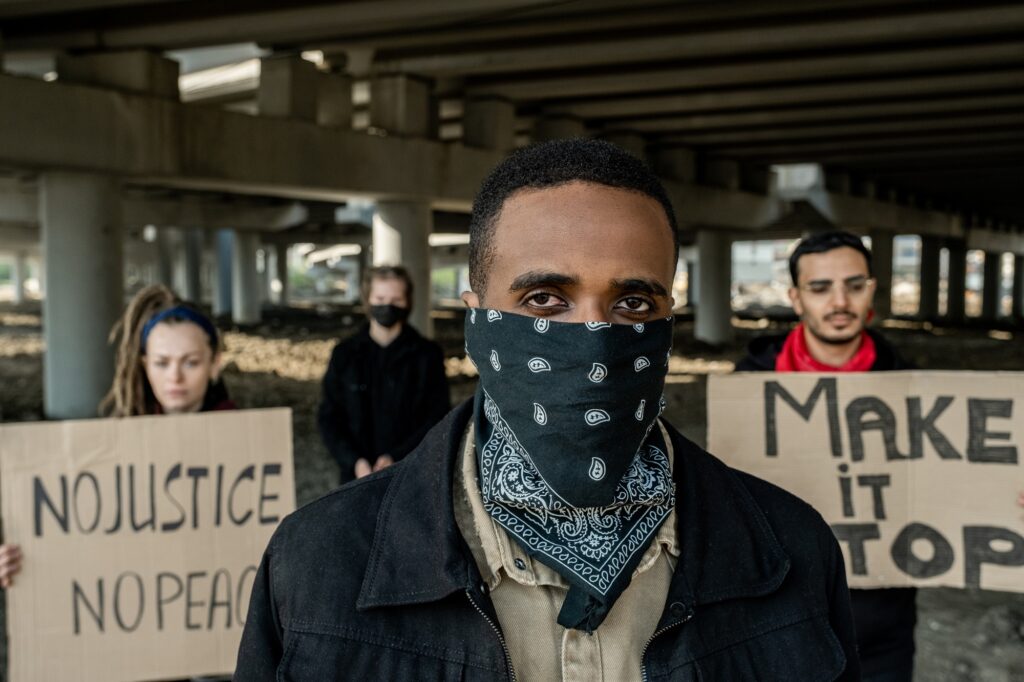Key Takeaways:
- Britain faces growing tensions fueled by mass immigration, social fragmentation, and inadequate government responses.
- Cultural degradation and economic strain are key factors exacerbating public unrest and anti-immigration sentiment.
- A polarized society, marked by conflicting ideologies and a lack of constructive dialogue, risks escalating into deeper turmoil.
This week, Britain has been rocked by waves of protests and violence, casting ever more light on its simmering social tensions. They included, in.utfightening terms.present, arson attacks on buildings holding newcomers to heated road scrums fuelled by disinformation, dramatising a portrait of a nation embracing its sense of self in the face of mass immigration and cultural redefinition.
The murder of three children in Southport by the son of Rwandan refugees was a dreadful and ugly crime, but it sparked a wave of xenophobic violence throughout the land. The real roots of this unrest lie far beyond any single incident, and rioters targeted immigrant communities, which have been a magnet for online rumours and deep-seated resentment.
Britain has wrestled for decades with the problems of mass immigration. New arrivals have made entire neighbourhoods enclaves, and instead of stimulating social cohesion, it has led to ghettoization. In Rotherham, for example, horrific crimes such as the organised sexual abuse of young women by men of Pakistani decent were allowed to endure for many years because of a catalogue of systemic failures. Paralysed by fear of racism accusations, authorities failed to protect their citizens, causing further erosion in trust of institutions.
Britain’s cultural transformation adds considerably to the complexity. Theodore Dalrymple’s article speaks to a phenomenon where parts of British society have adopted an antinsic to refinement ethos. This cultural shift — from the behaviour of pub goers to middle class citizens seeming to mimic lower class speakers — is part of a broader dissatisfaction and rejection of traditional values. People are now rejecting civility in favour of whether something feels authentic, even if it causes damage to those around them.
Meanwhile, immigration policies have been based on no foresight. Open-border advocates call for more inclusivity without addressing critical questions: How many refugees can fit? Where should they integrate? To whom does the economic burden fall? These oversights have left little cause for lower income Britons to feel left behind, as rents have risen, public services are strained and jobs are harder to find, especially.
With fuel provided by social media, public anger has been turned into a megaphone for misinformation. Riots were stoked through false claims that the Southport killer was an asylum seeking Muslim, when it was later confirmed that he was born and living in Britain, to refugee parents. This shows how weak the balance of social dynamism is; rumours are often louder than facts.
Both have helped the polarisation and, in some cases, recent liberals have actually been viewed as too detached from everyday citizens to fully share their struggles. The morally compelling calls for open borders and the acceptance of refugees fall short in terms of the practical. To many working class Britons, these policies simply feel as impositions from a distant, disconnected leadership. There’s a real risk that this growing resentment of moral posturing will seed the ground for extremist ideologies.
Britain is at a crossroads as tensions rise. It is the context of immigration, cultural disintegration and economic inequality that are of such urgency that these facts are underscored by the recent riots. That is, policymakers have to land between being compassionate to immigrants and being able to provide stability for the citizens. If that’s not done, it will only push an already divided society further into chaos.
The way forward must be in open honest and divisive discussions rather than divisive discussions. Britain’s ability to adapt and to integrate has been an historic strength. The legacy of this must be preserved by the nation taking on its challenges frankly, with empathy, pragmatism and a determination to be united as one.










